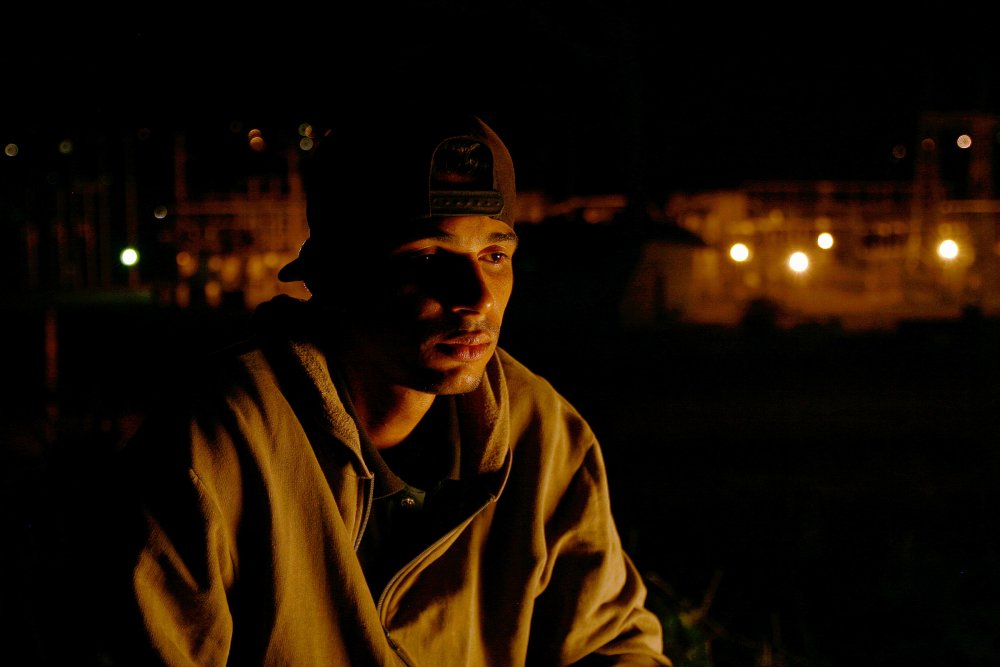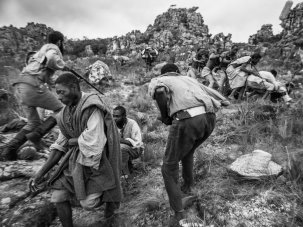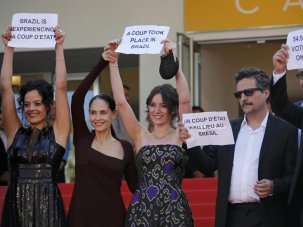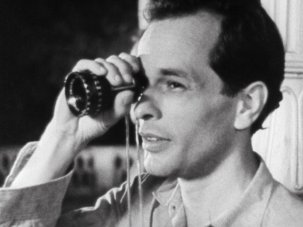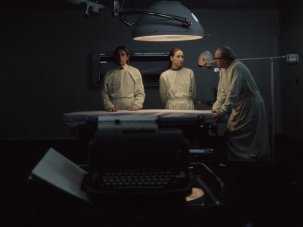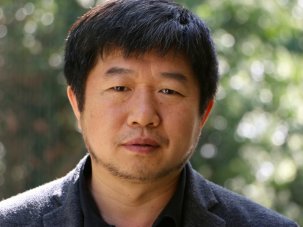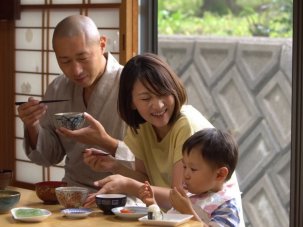Night has fallen on Brazil: a shadowy figure trudges through deep rural darkness. Insects whirr, distant cars thrum, a crowing cock anticipates a dawn that no human eye can yet discern. This is the arrestingly low-key opening of Seven Years in May, a 42-minute film directed and co-written by Affonso Uchôa, which world-premiered at – and proved one of the highlights of – April’s Visions du Réel, the documentary-oriented film estival held in Nyon, Switzerland since 1969.
Brazil/Argentina 2019
42 mins
Director Affonso Uchôa
Original Portuguese title Sete anos em Maio
World premiere 9 April 2019 at Visions du Réel
Originally a showcase for more classical forms of documentary film, especially from Eastern Bloc nations, Visions has increasingly embraced ‘hybrid’ forms of cinema since 1995 – when it adopted its current name under the artistic directorship of Jean Perret. Indeed, Seven Years in May makes no bones about its status as a constructed narrative, albeit one drawn very directly from the experiences of its protagonists, especially twentysomething Rafael Rocha (credited as co-writer with Uchôa and editor João Dumans).
The bulk of the screenplay’s tripartite structure is dominated by an extended campfire monologue in which Rafael recounts terrible treatment at the hands of the police. In 2007, he was arrested, punched unconscious and then tortured at the electricity substation in the southern city of Belo Horizonte, a facility that forms the backdrop for the first and second parts of the film. The fact that the police were acting with such brutality even in 2007, in the middle of the presidency of the left-wing Luiz Inácio Lula da Silva – near-universally known in Brazil by his nickname ‘Lula’ – casts a chilling effect. As anyone who has followed the nation’s turbulent politics in the subsequent years knows, such malaises have become even more widespread and entrenched, and last year the far-right candidate Jair Bolsonaro swept to an easy victory in the presidential election with a platform that included a commitment to allow (even encourage) the police and military to crack down hard on the population, following the blood-spattered playbook of the Philippines’s Rodrigo Duterte.
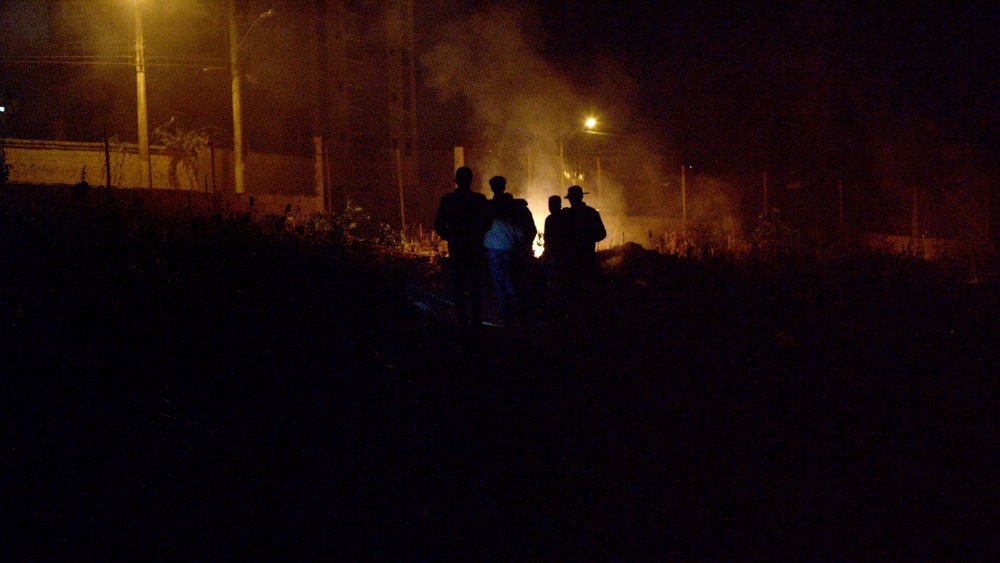
Seven Years in May was, per the end credits, shot from September 2017 to September 2018, and thus can be interpreted as one of the very last films of the pre-Bolsonaro era, made during the presidency of patrician neoliberal Michel Temer. Rafael’s testimony gives voice to the marginalised in a Brazil which has, in the current decade, seen income equalities widen and the super-rich prosper at the poor’s harrowing expense.
Rafael’s story is one of everyday oppression, a downward spiral into crime, drug-dealing and self-disgust (“I’m screwed and want to keep doing shit…”) It is only after 17 minutes of unbroken screen time that Uchôa finally cuts, revealing that Rafael has a sympathetic friend by the campfire to whom he is telling his tale. From this point on the director allows hints of optimism to enter what has until now been a grim rendition of inhumanity and cruelty. A desire for justice manifests itself among the ashes of despair. The pile of corpses has grown so much that the sky is blotted out. “That’s why it’s so dark… but there’s no night that lasts for ever.”
This longest section of the film is bookended with a shorter introductory sequence – a disturbingly ambiguous, nightmarish prologue in which Rafael re-enacts his arrest and brutalisation with some friends – and a mildly surreal epilogue in which a military/cop type leads a group of people in an ‘up/down’ game from which all bar Rafael end up being eliminated. Again, there is no pretence about this final section being anything but orchestrated by the filmmakers: the section is squarely allegorical as a vignette of domination and defiance. It is as effective as it is blunt, apt enough for a populist era in which polite, elegant allegories obviously won’t cut much mustard.
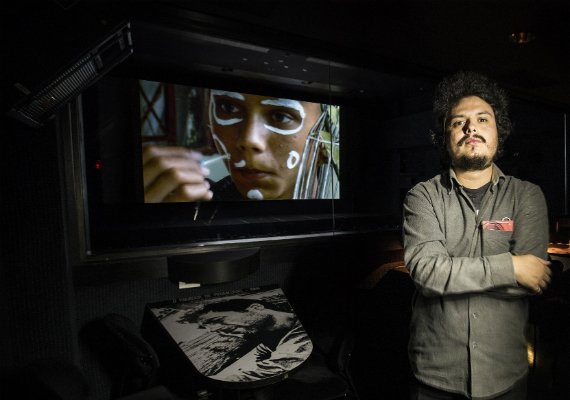
Affonso Uchoa
Having already established his name with his first two features, The Hidden Tiger (2016) and Araby (2017), the latter co-written and co-directed with Dumans, Uchôa thus confirms his status as one of the most articulate and engaged political filmmakers in Latin America. Araby, the feature-length picaresque tale of one worker’s struggles towards dignity and self-realisation – and also a docu-fiction combination of narrative modes – is a particularly outstanding achievement, simply one of the great films about labour and working people from the current century.
Seven Years in May is a vivid, spiky miniature by comparison, fruit of Uchôa spreading his wings and experimenting with narrative forms and semi-oblique juxtaposition. In terms of content, the film constitutes an an urgent, compelling dispatch from a beleaguered and besieged artistic community, thousands of whose members are despairing and/or contemplating exile. But many are stoically determined to stick it out through what they know – or hope – will be the darkest era of their lives. Somewhere, somehow, dawn must come.
-
The Digital Edition and Archive quick link
Log in here to your digital edition and archive subscription, take a look at the packages on offer and buy a subscription.




